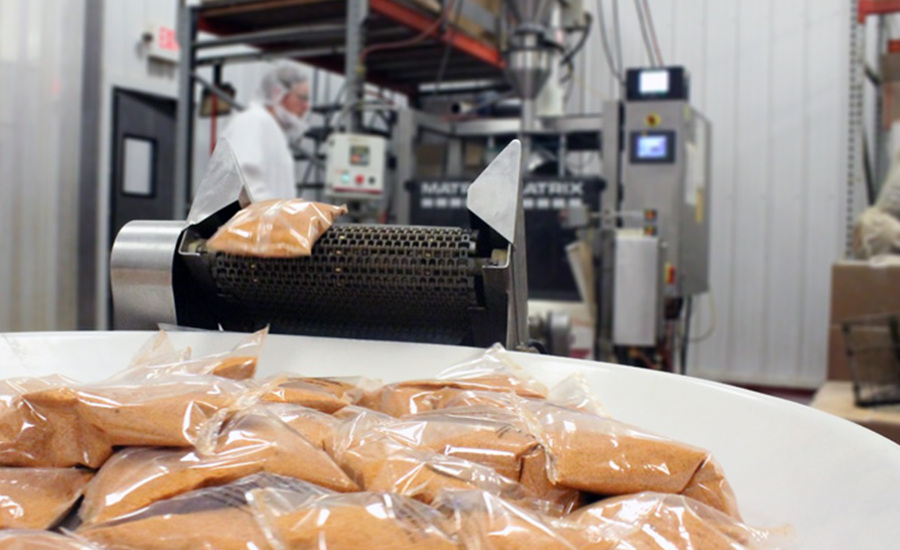In today's diligent consumer landscape, the need for ethically sourced and sustainable products has actually risen. Private label food manufacturers have actually emerged as pioneers in this domain, often working together with contract food manufacturers to spearhead sustainability as well as responsible sourcing campaigns. With a tenacious commitment to environmental values, exclusive label brands have actually made it their goal to supply lasting, premium alternatives to customers.
Private Label Food Manufacturers
In recent years, private label food manufacturers, also known as own brands or shop brand names, have actually experienced an impressive rise in popularity. These producers create goods sold under the logo design of a retailer, grocer, or exclusive entity. What collections private-label products apart is their ability to use competitive pricing without jeopardizing on high quality.
Contract Food Manufacturers
Numerous private-label food manufacturers sign up with forces with contract manufacturers to establish their line of product. Contract food suppliers are professionals in producing foodstuff for exclusive tags. This calculated partnership enables exclusive label business to take advantage of the experience, sources, as well as dedicated food production centers of their collaborators.
Sustainability at the Core
Private label food manufacturers use various strategies to enhance sustainability within their supply networks:
Honest Sourcing:

Exclusive label firms are increasingly committed to sourcing active ingredients according to honest and reasonable profession criteria. This involves ensuring that producers and also workers of basic materials, such as coffee beans, flavors, or cocoa, obtain reasonable compensation for their initiatives.
Local Sourcing:
Focusing on local sourcing of components is one more hallmark of private-label food manufacturers. This not only lowers the carbon footprint associated with transport but also sustains regional farmers and communities.
Organic Contents:
With the organic food market growing, exclusive tags are reacting by integrating organic ingredients into their product. Organic farming practices focus on soil health and wellness while avoiding artificial chemicals as well as plant foods.
Sustainable Fish and shellfish:
Private Label Food Manufacturers are thorough in making sure that the fish and shellfish they use is sustainably collected, sticking to standards established by organizations like the Marine Stewardship Council, which advertises responsible fishing.
Reduced Food Waste:
Personal label companies are proactively servicing reducing food waste by executing effective manufacturing processes as well as developing items with longer service life. Some brands are additionally partnering with food rescue companies to contribute excess food to those in demand.
Eco-Friendly Product Packaging and also Campaigns
Sustainability initiatives by private-label food makers extend beyond sourcing components to incorporate product packaging as well as eco-friendly efforts:
Sustainable Packaging:
Exclusive label brands have welcomed environmentally friendly packaging alternatives, including recyclable, naturally degradable, or compostable materials. Redesigning product packaging to decrease excess material and also minimize ecological influence is a top concern.
Waste Reduction:
To minimize wastefulness, private-label food suppliers maximize product sizes, decrease excess product packaging, and also explore ingenious packaging options. Some brands even encourage customers to join reusing programs.
Energy Efficiency:
Lots of private label suppliers are purchasing even more energy-efficient production plants, decreasing water use, and also taking on renewable resource resources to further reduce their ecological footprint.
Carbon Neutral Initiatives:
Some exclusive brand name food manufacturers are taking ambitious steps to attain carbon nonpartisanship by offsetting their greenhouse gas exhausts via reforestation tasks and also renewable energy debts.
Challenges and also the Roadway Ahead
Despite the considerable strides made in sustainability as well as accountable sourcing, private-label food manufacturers encounter difficulties. Balancing sustainability with cost-effectiveness can be a delicate act, in some cases requiring compromises on lasting active ingredients or the expedition of green choices.
Nonetheless, the future of private-label food manufacturing holds terrific guarantee. As customer understanding and also demand for sustainable products remain to increase, private-label brand names as well as their agreement food manufacturing partners are likely to intensify their initiatives. Collaboration with suppliers as well as investment in lasting technological developments as well as transparency will certainly be crucial fit a sustainable future for the market.
Often Asked Concerns

Private label food manufacturers produce items marketed under the logo design of a retailer, grocer, or private entity. They supply competitively valued products without compromising on top quality.
Q2: How do private label food manufacturers advertise sustainability?
Private label food manufacturers promote sustainability through ethical sourcing, neighborhood active ingredient procurement, making use of natural active ingredients, sustainable seafood practices, and also efforts to lower food waste.
Q3: What green product packaging alternatives do exclusive label brands utilize?
Exclusive label brand names take on eco-friendly packaging options such as recyclable, biodegradable, or compostable products. They also revamp packaging to reduce excess material as well as minimize ecological effect.
Q4: What tests do private label food manufacturers face in sustainability efforts?
Stabilizing sustainability with cost-effectiveness is a significant obstacle for private label food manufacturers. This might need compromises on lasting active ingredients or the expedition of environment-friendly options.
Verdict
Private label food manufacturers go to the leading edge of the sustainability and also accountable sourcing activity private label food within the food sector. Their dedication to honest sourcing, regional procurement, natural components, as well as sustainable techniques, as well as their commitment to environmentally friendly packaging and also waste reduction efforts, show their determination to satisfy the needs of today's eco-conscious customers.
Despite the difficulties they encounter, private label food manufacturers are positioned for an appealing future. With consumers increasingly prioritizing sustainability, the industry is most likely to witness also better partnership with providers, investment in lasting technologies, and a commitment to openness. As we move on, private label food manufacturers will remain to play a vital role in shaping a much more sustainable as well as honest food landscape for all.